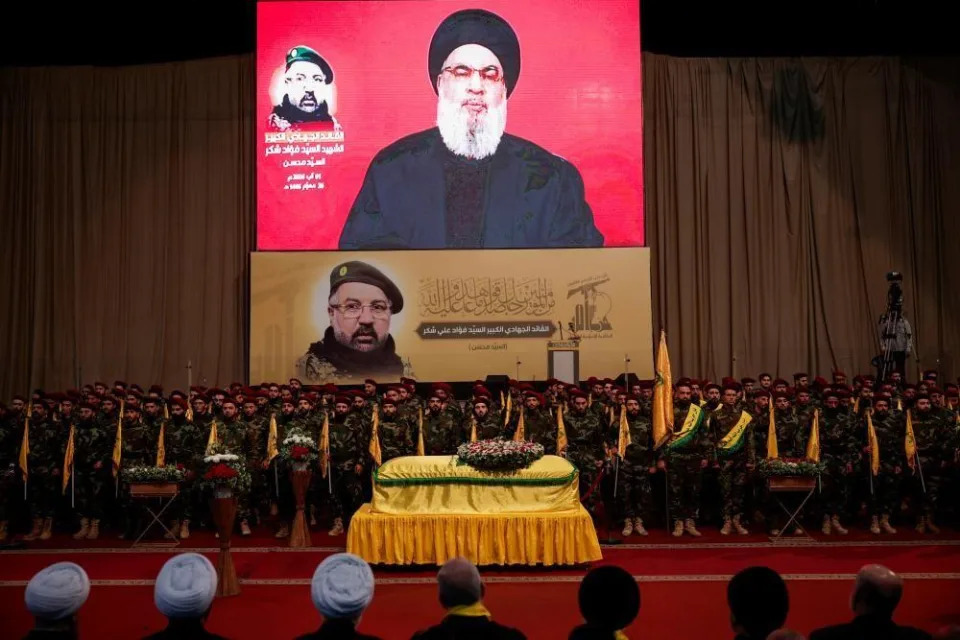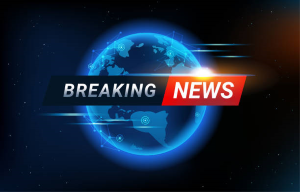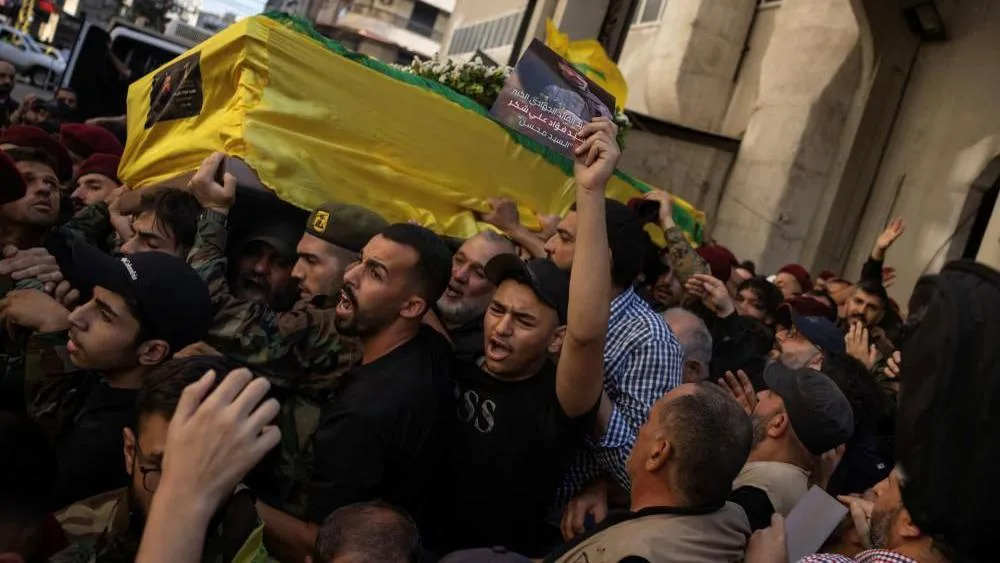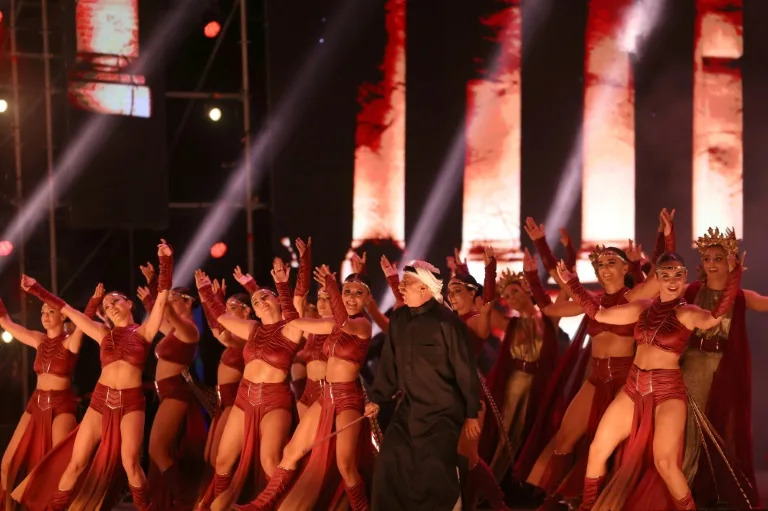Mourners carry Fuad Shukr's coffin during his funeral in Beirut on Thursday
In Beirut’s southern suburbs of Dahiya, the stronghold of Hezbollah, large crowds wearing black joined the funeral for Fuad Shukr, a senior commander of the powerful Lebanese militia and political movement, and the most high-profile member to have been assassinated by Israel during these current hostilities.
They carried placards with Shukr’s face, waved the yellow-and-green Hezbollah flag and chanted some of the group’s slogans, sometimes with their fists in the air.
According to the Israeli military, Shukr was behind a missile strike that killed 12 children and teenagers on a football field in the Israeli-occupied Golan Heights last Saturday. Hezbollah has denied involvement, although it initially claimed an attack on a nearby military base, which raised the possibility that the missile missed its intended targeted.
Shukr, who was also known as al-Hajj Mohsin, was said to be a close adviser to Hassan Nasrallah, the influential and long-time Hezbollah leader.
As people were gathered, Nasrallah gave a televised speech that was watched closely for any indication of Hezbollah’s possible next moves.
The conflict with Israel had entered a “new phase", he said, speaking from a secret location, as he always does for security reasons. The enemy must wait for the “inevitable response” because it had crossed “red lines”, he added, saying that the reaction would be proportionate to Israel’s targeting of a civilian building.
His tone seemed to indicate that the group remained uninterested in another major war with Israel. But there are concerns that they could be sliding into one.
“I’m not afraid of war. We’re ready for whatever Sheikh Nasrallah decides to do,” one man in the crowd told me. “Inshallah,” said another, meaning God willing, when asked if he believed that Hezbollah would retaliate for the killing.
Shukr's killing on Tuesday - an attack that killed six other people, including two young siblings - renewed fears that the relatively contained conflict between Hezbollah and Israel could escalate into an all-out war, with the potential to engulf the entire Middle East.

Hezbollah says its campaign, which started a day after the Hamas attacks on Israel on 7 October, is in support of Palestinians in Gaza. Most of the group’s attacks, and Israel’s counterattacks, have been limited to areas along the Lebanon-Israel border.
Supported by Iran, Hezbollah has long been seen by Israel as a much more formidable foe than Hamas. The group has an increasingly sophisticated arsenal of weapons that includes attack drones and precision guided missiles capable of striking deep inside Israel.
A conflict with Hezbollah would probably involve other Iranian-supported groups in the region, members of what Tehran calls the “Axis of Resistance” - the Houthis in Yemen or militias in Iraq, for example.
Iran, too, has vowed to respond to the assassination of Ismail Haniyeh, the Hamas political chief who was killed on Wednesday while visiting Tehran for the inauguration of the new Iranian president.
Iran and Hamas have blamed Israel, which has stayed silent. The killing has dealt a blow to the possibility of any success in ongoing talks for a ceasefire and hostage release deal between Israel and Hamas in Gaza. It is the main hope to defuse tensions with Hezbollah, and diplomatic efforts continue to try to de-escalate the situation.
The Israeli military has said it is ready for any scenario, as the country braces itself for a possible response to the two assassinations.
Nasrallah’s speech contained, as expected, sharp words against Israel but did not appear to suggest that a bigger war was imminent just yet.
AfriPrime App link: FREE to download...
https://www.amazon.com/Africircle-AfriPrime/dp/B0D2M3F2JT
Thousands throng Beirut show as Hezbollah vows revenge
A dance extravaganza by Lebanese troupe Mayyas, who won "America's Got Talent" in 2022, draws thousands to the Beirut waterfront hours after Hezbollah's top commander Fuad Shukr is laid to rest after his death in an Israeli air strike.
As Hezbollah's leader threatened Israel with crushing retaliation for killing their top commander, thousands in Beirut flocked to a dance extravaganza in a stark illustration of Lebanon's deep divisions.
In the capital's southern suburbs -- a Hezbollah stronghold -- tens of thousands of black-clad women and men in military uniform joined Thursday's funeral procession for slain commander Fuad Shukr.
Across the city on the Beirut waterfront, nearly 8,000 people attended a spectacular dance show that evening by the Mayyas troupe that won the "America's Got Talent" television contest in 2022.
"I am sad people are dying in southern Lebanon and Gaza, but resistance is not just about carrying a gun and fighting," said 45-year-old Olga Farhat.
"Joy, art and celebrating life is also a form of resistance," the human rights activist told AFP.
Fireworks opened the dance show, hours after Hezbollah buried Shukr, who was killed in an Israeli air strike in the southern suburbs on Tuesday.
The show entitled 'Qumi' -- rise up in Arabic -- was an ode to the Lebanese capital that has endured decades of conflict, upheaval and a years-long economic crisis.
"There is a split in the country between those who don't care for war and feel that... Hezbollah wants to impose its collective identity on them, while the other group is fighting," Farhat said.
"I understand both points of view, but we are tired of wars and crises, we want to enjoy life."
- 'We love life' -
In the southern suburbs, thousands of Hezbollah supporters chanted "Death to America" and "Death to Israel".
Across the city, dozens of Mayyas dancers performed a moving tribute to war-battered south Lebanon, from where Hezbollah has been exchanging near-daily cross-border fire with the Israel army since the Gaza war began on October 7.
"I grew up during Lebanon's (1975-1990) civil war and I was raised to believe in the Palestinian cause," Farhat said.
"But today I say 'Lebanon first'".
The raid that killed Shukr and an Iranian military adviser also cost the lives of three women and two young siblings, authorities said.
In a video clip circulating online, their bereaved mother said their lives were a "sacrifice for you, Sayyed (Hezbollah leader Hassan Nasrallah)".
Speaking from the southern suburbs, Hussein Nasreddine, 36, said: "We love life like everyone else... but if Israel drags us into war, it is our duty to die as martyrs".
The cross-border violence since October has killed at least 542 people in Lebanon, most of them fighters but also including 114 civilians, according to an AFP tally.
On the Israeli side, the army reports 47 dead, including on the annexed Golan Heights.
- 'Exact copy' -
In June, the head of the Hezbollah bloc in the Lebanese parliament, Mohammad Raad, who lost a son in the border clashes, lambasted Lebanese "who want to go to night clubs... beaches, and enjoy their lives" as war rages in the south.
This week, independent lawmaker Mark Daou angered Hezbollah supporters by posting a photograph of Thursday night's show with the comment: "The strongest response to Israel is the culture of life and beauty".
Daou, who was elected after mass protests against the political leadership responsible for the country's slide into economic crisis, told AFP he refused to "reduce Lebanon to a battlefield".
Many politicians, especially from Lebanon's Christian community, have criticised Hezbollah for risking war with Israel.
Peace-building expert Sonia Nakad said "the bigger the tragedy, the greater the division" in Lebanon.
In Lebanon, power is shared according to sectarian quotas, with communities so divided about the country's past that events following 1943 are missing from official history books.
Each party "wants the other to be an exact copy of them to be able to co-exist, while they are opposites in everything," she said.
"The Lebanese have yet to renounce using violence against each other, no matter how big their disagreements," she said.
Foreign airlines have suspended or cancelled flights to Beirut but many Lebanese expatriates are still pouring in, although some have cut their holidays short.
Rabab Abu Hamdan said she planned to go back to the Gulf after feeling "very stressed in the past few days".
"Despite the difficult circumstances, Lebanon remains the best vacation destination," she said.
AfriPrime App link: FREE to download...




